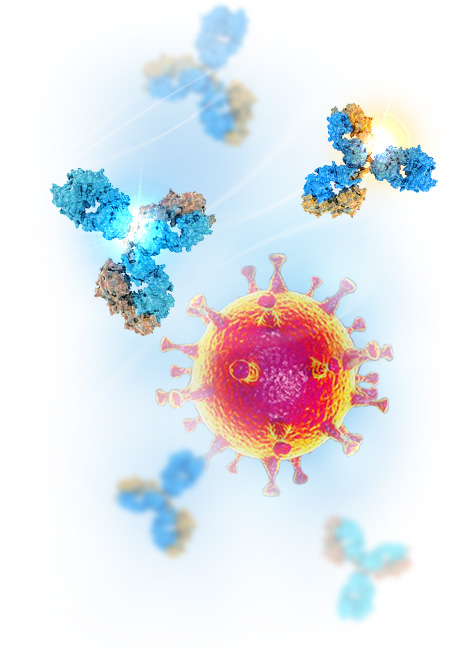Research Areas
Immune System
Representing a vast and complex network of cells, tissues, and organs, the immune system is comprised of several cell types, each having distinct and specialized functions such as engulfing bacteria, producing antibodies, and killing parasites, tumor cells and virally-infected cells, that collectively serve to protect the body from bacterial, fungal, and viral infections, as well as from the growth and dispersal of tumor cells. Representing a duality of responsibilities, the immune system initiates the body’s quick and efficient response to alien agents, while also distinguishing these threats from the body’s healthy cells in order to avoid attacks against the host; a process known as autoimmunity. Lymphocytes and other cells from the immune system, such as macrophages and dendritic cells, produce a large array of cell signaling proteins that are collectively referred to as cytokines, which are responsible for the intercellular communications necessary for the accurate and efficient performance of both innate and adaptive immune responses. Our understanding of the immune system has advanced significantly in recent years, and it has become evident that cytokines play a central role in the activation and regulation of the immune response.


